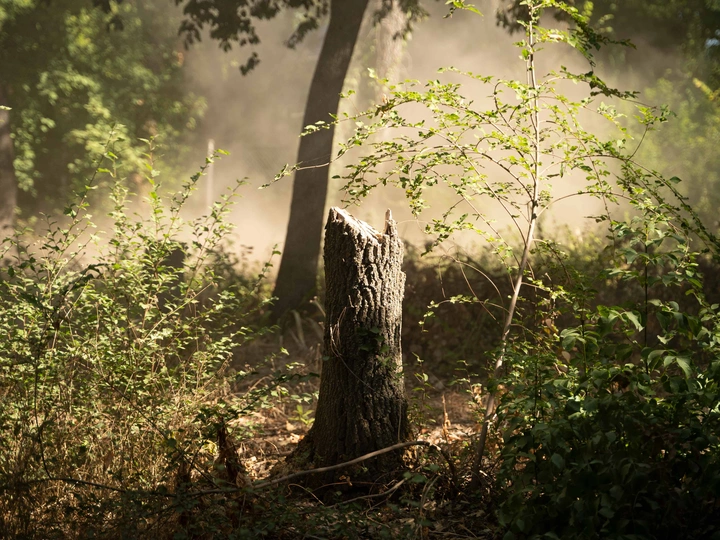Pond Pavilion

Samuele D'Eramo
Andrea Filippucci
Tersa is a young collective working at the crossroads of architecture, design, and technical support for the art world. Our work focuses on the use of raw, reclaimed, and natural materials, as well as different processing techniques. As Tersa collective we design and create objects that become tools for questioning the realities they come into contact with. We process our work through constant feedback exchange between research and practice, which provide and fuel a radical approach to the subjects addressed. Our first project still ongoing is “C129 Intimissima Galleria”, a small photographic gallery with the aim of exploring the theme of intimacy in public space.
Tersa is a collective led by Andrea Filippucci, Cristiano Corbucci, and Samuele D’Eramo, established in early 2024 in a small town in central Italy, following years of shared experiences, professional collaborations, and mutual interests.
Andrea Filippucci (b. 1994) is an Italian architect. He studied between Perugia, Porto and Lisbon where he graduated on the subject of urban collective spaces. He works in the field of architecture and design, both autonomously or through Tersa.
Cristiano Corbucci (b. 1994) is an Italian artist with a multidisciplinary background in visual and curatorial arts developed between Perugia and Milan. He has earned a MA in performing arts in Rome. He is the founder and curator of Giardino Villa Cappuccini and collaborates with Tersa in the management of design and exhibition projects
Samuele D’Eramo (b. 1994) is an Italian architect. He studied between Perugia and Lisbon, and worked in the Portuguese city as an architect. He works on the recovery of industrial architecture and collaborates with Tersa on design and architecture projects. Within the collective, he is responsible for the development and support for production.
In Europe, there are many initiatives focused on reclaiming abandoned green areas both from a natural and cultural perspective, one of which is Giardino Villa Cappuccini: an ancient hortus conclusus of a convent, which, left uncultivated for decades, has undergone noticeable deterioration. During the area recovery process, several issues occurred, causing the suffering and/or death of many trees and the consequent formation of clearings due to the collapse or felling of the same plants.
Today, the garden is in the midst of regeneration as an independent agri-cultural space, through artistic and cultural events. The Pond Pavilion is born to address the needs of the Garden, and then be scaled and replicated in similar contexts such as urban forests, abandoned rural areas, and liminal zones. The research and development of the project are based on environmental sustainability and the reuse of recovery materials available in the project area. The use of identified materials - in this case, the old covering of a swimming pool - forms the framework of the pavilion composed of a mobile canopy and a permeable floor. While the mobile canopy promotes social interaction and rainwater collection, the permeable floor serves as the focal point for the growth of new vegetation in the garden. The pavilion is envisioned as a puddle, a water reservoir supporting biodiversity, a water hub that contributes specifically to green development. The sloped covering is used to create a dynamic irrigation system, a network of puddles distributed locally to meet the needs of the areas involved. Pond Pavilion is conceived as a localized ecosystem that evolves and adapts; it is an incubator for socio-cultural projects in dialogue with nature; it is a means for sustainable and replicable space regeneration.